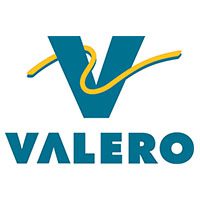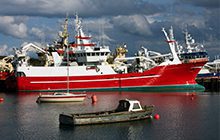
Phillips 66 has further strengthened its commitment to UK fuel sales, appointing Tony Reddington as national sales manager for its UK & Ireland marketing division.
In his new role, Tony will be 100% customer-focused, targeting new customers and strengthening existing relationships with supermarkets and high volume resellers and dealers throughout the UK and Ireland. He will take responsibility for the development of the company’s speciality fuel businesses – marine, aviation and LPG.
Since joining the company in 1987, Tony has held a number of roles across its upstream, downstream and corporate divisions, with a particular specialism in finance.
Pete George, the company’s managing director UK & Ireland marketing, commented: “Tony has extensive experience of our business and our brand, as well as an in-depth understanding of the UK and Ireland’s fuel market. He is well-placed to take on the challenge of increasing our market share, identifying new opportunities and developing our customer base across all of our fuel products.” www.phillips66.co.uk

Valero has extended and expanded its partnership with Wincanton.
The partnership, which has spanned almost 20 years, will now continue for at least another five years. Wincanton has also been awarded a new, five year contract to take over the scheduling and planning of its deliveries, including taking and managing customer orders.
Under the new terms Wincanton will operate out of Valero’s network of UK terminals, transporting more than two billion litres of fuel a year for the business. The logistics provider will operate a 24/7 service on behalf of Valero, taking up to 600 customer orders a day before scheduling and planning delivery to more than 1,000 UK locations.
Commenting on the announcement, Wincanton’s CEO, Eric Born, commented: “We are delighted to be expanding our relationship with Valero and are looking forward to finding further opportunities to develop new and innovative ways of adding value to our partnership.
“Today’s announcement confirms Wincanton’s position as a market leader in the sector, with a proven capability to deliver value added services that are usually out of scope within a traditional fuels distribution model.”

The Federation of Petroleum Suppliers (FPS) has produced a Code of Practice and Customer Charter in a bid to raise standards within the oil distribution industry.
Since the 2011 Office of Fair Trading (OFT) investigation, the FPS and its members have worked closely with the OFT, Citizens Advice Bureau, Consumer Focus, Advisory Committee on Releases to the Environment and Department of Energy and Climate Change to form the new documents.
Launched earlier this month, the Code of Practice is designed to ensure all members adhere to high standards and contribute towards the professionalism of the industry. Together with the Customer Charter, the new code should ensure that the best service is offered by FPS members and that customers are fully supported when ordering heating oil.
Chief executive, Mark Askew, said: “The Code of Practice has taken time to implement but we have ensured that we have consulted with consumer groups so the consumer has their say as well as ensuring DECC and the OFT are happy with the proposed Code.
“The FPS will act as guardians of standards for the oil distribution industry and through this Code of Practice we will set those standards and show we take them seriously. Having a Code of Practice in place for FPS members will give the public reassurance that they are dealing with companies who are adhering to best practice.
“Every FPS member should offer clear pricing and delivery guidance to customers at the time of ordering, and the new charter explains all this. As well as providing information on the different ways to place an order, members should advise on matters such as the right to cancel and what to do when something goes wrong. We are doing everything we can to ensure the customer experience is a positive one.”

Brian Worrall, DODF chair and Marisa Ferguson, contracts manager, SQA, at the signing of the PDP agreement
The UK’s first Petroleum Driver Passport (PDP) has moved a step closer to completion with hauliers and training providers being invited to gain approval to deliver the necessary training and assessment.
Hauliers and training providers are now able to apply to Scottish Qualifications Authority (SQA) to become PDP approved centres, enabling them to carry out some or all of the required training and assessment.
The scheme will be open for driver training from January 2014. During 2014 all drivers must be trained and pass the associated assessments before being issued with the PDP card. Terminals will begin mandating the scheme from January 2015.
Training providers can register to undertake all activities, classroom and practical, on a five year and annual refresher basis whilst others may opt to conduct their own annual refresher, practical or classroom training. Some operators may choose to undertake the practical assessments for themselves and others, leaving the classroom elements to third party providers.
Brian Worrall, Downstream Oil Distribution Forum (DODF) independent chair, said: “The implementation of the PDP is progressing well and we are inviting companies to register with SQA as training providers so that we are in a position to begin driver training in January 2014. By implementing PDP, the industry can have confidence that drivers have been trained to a consistently high, externally verified standard in all aspects of tanker driving, from pre-vehicle checks to loading, driving and discharging.”
Secretary of state, Ed Davey added: “Government is supporting the PDP scheme which will improve standards and the quality of training across the industry. We would encourage all training providers to sign up to delivering this new qualification.”
Sue Macfarlane, head of specialist awards and services at SQA, said: “We are delighted to be working with the DODF. I believe SQA’s considerable experience of developing, assessing and quality assuring qualifications relating to the transport of dangerous goods means we can be trusted by the industry to help demonstrate drivers’ skills and knowledge of relevant safety procedures to terminal operators, customers and the public.”

The vice lord lieutenant of Lancashire presents Edward Fort OBE with the Queen’s Award for Enterprise:International Trade
Fort Vale recently celebrated its fourth Queen’s Award for Enterprise: International Trade.
Vice lord lieutenant of Lancashire, Colonel Alan Jolly, visited the company’s headquarters in Burnley to present the trophy on behalf of the Queen, to company founder and chairman, Edward Fort OBE.
Edward Fort said: “I am extremely proud of our company and what we have all achieved together. Such an endorsement means that customers can be confident that they are dealing with the best in our field.”
The company has just released a new video on YouTube, showcasing the company’s latest developments. In an interview Ian Wilson, the company’s managing director, explains the company’s philosophy on continual improvement and innovation.
“We are a team of engineers and innovators and firmly believe that adapting to constant change is the only way to move the business forward. Our customers are demanding shorter and shorter lead times and it is only by having our own dedicated foundry that we can control the quality of components and the rate of supply to achieve these demands.
“We have recently constructed a 1,000 m2 research and development unit together with a test facility which will enable Fort Vale to continue to improve and develop its product range and keep the business in its current position in the market.”

The new range
Maxol Lubricants has unveiled a new motor oil range for the retail market.
The range reflects the new look of the Maxol brand and introduces new labels and symbols to make it easier to choose the correct motor oil. The symbols on each product indicate whether the motor oil is for petrol or diesel engines, or both and that it meets European Automobile Manufacturers’ Association standards. The label also displays a list of vehicles for which use of the oil is recommended.
At the beginning of the year Maxol unveiled a new brand and forecourt identity and the new range marks the company’s continued rejuvenation of the brand. Maxol Lubricants worked closely with leading brand consultants Neworld Associates to incorporate the aesthetics of the new retail forecourt brand in the motor oil range. Research showed that consumers were largely confused by technical data on traditional packaging and were averse to buying from forecourts where specialist advice was unavailable.
Commenting on the new look motor oil range, general manager, Owen O’Neill commented: “We have always been known as the pioneers of the industry and believe that we have again set a new higher standard by being the first to introduce clear and simple labelling as part of our new look motor oil range.
“Our primary focus was to make the purchasing process easier for consumers and we feel the non-technical language, new symbols and clever design achieve this.
“This has been an exciting project and one which we feel will help Maxol to win new customers. It is also important that the Maxol Group’s new brand identity is adopted across all facets of the business to guarantee consistency for all stakeholders.”
The new look range will be fully rolled out by the end of 2013.www.maxol.ie

Andrew Bentley of Chester Performs with Ian Cotton of Essar Energy
Stanlow-based Essar Oil UK is sponsoring The 2013 Essar Chester Literature Festival.
The autumn festival, which is produced by city arts organisation, Chester Performs, will run from 13-27th October.
Ian Cotton, Essar’s head of communications and community, said: “We are delighted to be sponsoring the festival for another year. The event has become an integral part of the city’s cultural calendar and this year, there really is something for everybody.”
Festival manager, Paul Lavin, added: “We’re pleased to have Essar on board. We’ve developed a great relationship with the company, and through their continued support, we can ensure the festival continues to grow.”
Among the authors starring at the festival are broadcaster, Clive James, comedian, Tim Vine, war correspondent, Kate Adie and actor, Sir Derek Jacobi. Other big names on the bill include BBC Radio 5 Live’s, Richard Bacon, Beatles historian, Mark Lewisohn and TV personality, Kate Humble.www.chesterliteraturefestival.co.uk
Greg Garland, chief executive of Phillips 66, has revealed that a number potential buyers have expressed interest in acquiring Ireland’s only refinery, possibly saving it from closure.
“We do have people interested in Whitegate,” he said of the Cork-based plant which employs 200 staff.
The refinery, which has operated in east Cork for nearly 55 years and supplies approximately a third of the country’s oil, requires extensive modernisation and closure looked likely if it was not sold.
Michael Martin, Fianna Fail leader earlier this summer, commented: “The threat to its future has serious implications for Ireland’s energy supply and consequently for our economy.”
Phillips 66 is pulling out of Ireland completely, selling its wholesale marketing business and a storage terminal in Bantry Bay.

World Fuel Services barge Cap Mejean, bunkering the Seven Seas Voyager
Like many other industries, shipping was a casualty of the economic downturn in 2008. Liz Boardman looks at how the distributors supplying the marine market were affected, how the industry has bounced back and concerns over new legislationA downturn in volume
“The shipping industry was booming before the summer of 2008, but freight rates like the price of oil crashed,” explains Nikki Jessop the Rix Group’s director, Maritime Bunkering. “Following this, ship owners and operators resorted to slow steaming and bunkering at locations offshore on passage at lower levels to keep their costs under control. Marine fuel volumes and margins are down significantly and credit risk management is more important than ever.”
Peter Hunt, who handles Falmouth marine sales for World Fuel Services, agrees. “We saw a peak in terms of volumes in 2007/8. Total UK bunkerage in 2007 was between 2.5-3 million tonnes; now it’s down to approximately 2.2 million tonnes.”
World Fuel Services is one of the biggest suppliers of bunkers to the UK market. Its UK-based subsidiaries (Henty Oil, Falmouth Petroleum and Tramp Oil) supply over 750,000 metric tons of bunkers each year in UK ports (HSFO, LSFO and LSMGO). The company has storage and blending facilities at Immingham, Falmouth, Liverpool and Holyhead and a resident barge at Dover.Recovery
“As with most UK industries, the marine fuel industry has not escaped the downturn unscathed,” says GB Oils’ marine national sales manager, Gary Byers. “However we have experienced an increase in demand for marine fuel oil throughout the UK due to factors such as increased brand awareness and establishment of close, trusting relationships between the company, international traders, ship owners and the UK and international government bodies.”
Since it was formed some years ago, GB Oils’ marine division has become a key player in the industry and is continuing to grow. The company’s marine team is a trusted supplier to some of the UK’s main marine companies including the Royal National Lifeboat Institution and Ministry of Defence.
The company is the only bunkering supplier able to distribute nationwide and is one of just a handful of companies permitted to supply fuel on the Thames. Another specialist service provided by GB Oils is the transportation of IFO grades from Eastham to every port in the UK, Northern and Southern Ireland, allowing the company to not only maintain business, but to continue to grow.
The Rix group currently owns three coastal tankers plus three estuarial barges, all suitable to load from the major oil companies. The marine department charters three/four of the tankers for bunkering activities ECUK, whilst the other two are on charter to third parties.
“The Humber, like most ports saw a significant reduction in bunker volumes by early 2009,” explains Nikki. During 2008 Maritime Bunkering operated two coastal tankers plus two estuarial barges. As a result of pressure from the major oil companies over age and vetting, the Rix group had already entered into a phase of new builds to maintain its market position.
“We (Rix/Maritime Bunkering) have managed to keep our heads above water during challenging economic times through a conservative approach to the creditworthiness of our clients, securing product availability from our business partners and also investing a substantial amount of capital into our barge fleet, providing a good service.”
In order to ensure that it maintains its barge fleet, Rix’s marine department also offers a barge hire service to other local suppliers, maintaining continuity to the area with regular barges.”Marine legislation
From 1st January 2015, legislation will come in to force, further reducing the content of sulphur in marine fuel from 1% to 0.1%. “The use of low-sulphur fuels is a hot topic within the industry,” says Gary Byers. “The ECA regulations are designed to limit the harmful impact sulphur can have on the environment, but there is some debate on how effective this will be and the potential impact it could have on the marine industry.
“Long-term, the regulations will have clear environmental benefits, however in the short-term, the treatment process required to convert fuel so that it contains 0.1% sulphur results in large scale carbon emissions, the impact of which negates the benefits of using a low-sulphur fuel.
“There is concern that the ECA Directive may lead to increased bunkering costs, which could push cargo towards non-ECA zones, and also that there may be a rise in the use of alternative transport, including land, causing more congestion and emissions from those modes of transport, therefore counteracting the planned benefits of marine vessels using low sulphur fuels.”
Nikki Jessop echoes these concerns; “It’s not known if sufficient 0.1% fuel oil will be readily available or if some ships will switch over to 0.1% MGO further increasing demand for MGO.”
Melanie Noel, WP Group’s fuel sales manager agrees: “Legislation changes will only see more marine customers switching to gas oil 10ppm which will open the market up to more competition. It will also see increasing issues with fuel specification as FAME is present in most gas oil 10ppm and this causes microbial growth between fuel and water interface. This will in turn accelerate degradation in fuel quality causing efficiency problems.”
WP Group purchases gas oil 10ppm direct from Esso’s Fawley refinery. Melanie explains: “Our fuel supplier, Esso, has taken the decision to produce gas oil with no added bio content by meeting its RTFO obligations elsewhere. As a result, WP Group can guarantee to supply gas oil containing less than 1% biofuel.”
On the positive side, Peter Hunt believes that the new legislation could be a good opportunity for Falmouth. “World Fuel Services expects Falmouth volumes to benefit from the reduction in maximum sulphur content for bunkers used in the European and USA/Canada ECAs when it comes into force. Ships approaching the European ECA from the Atlantic will not always be able to secure ‘ECA-compliant’ bunkers before entering; Falmouth’s location (just outside the western border of the ECA) makes it the last opportunity for ships to secure compliant fuel before entering the ECA.On the horizon
“While there are areas of uncertainty, the marine industry continues to be a strong business sector with opportunities for expansion. Marine fuel suppliers such as GB Oils have a key role to play in supporting the industry and for us, the focus remains on helping our customers to comply with legislation and working hard to ensure their needs are met,” says Gary.
——
HSFO – High Sulphur Fuel Oil
LSFO – Low Sulphur Fuel Oil
LSMGO – Low Sulphur Marine Gas Oil
IFO – Intermediate Fuel Oil
ECUK – East Coast UK
ECA – Emission Control Area
MGO – Marine Gas Oil
FAME – Fatty Acid Methyl Ether

Killybegs – where Donegal has a depot
Some lucky decisions and a keen share of the marine and lubricant markets have helped give one distributor a positive outlook in recession, writes Irish correspondent, Aine Faherty.
“All markets are contracting but we’re maintaining our own and growing market share where we can,” says Arthur McMahon, managing director of the Letterkenny-based Donegal Oil Company.
In the last two years, the company’s lubricants sector has seen growth treble as great strides were made in gaining market share.
The marine industry is also an important component with business from the fisheries and exploration industries in both winter and summer. The exploration industry is serviced from the port of Killybegs, where Donegal also has a depot. If oil exploration develops further off the west coast of Ireland – something largely determined by global oil prices – Arthur is hopeful there will be a beneficial knock-on effect on his business.
Presently, the company, which was formed by Arthur’s grandfather in 1954, operates in four areas with its core being home heating oil, delivered countywide from Falcarragh to the north and Killybegs in the south. The company also supplies diesel to agricultural, commercial and small retail customers. There are 30 full-time staff and 15 tankers, ranging from mini-tankers to full articulated trucks.
Now with his grandfather, father and brother Barry acting as non-executive directors, Arthur is the first McMahon to have a hands on role as managing director. Firmly in the driving seat, he looks to the future with positivity.
“When everyone else was getting bigger, we didn’t join them,” he said. He recalls how the company sold two filling stations in 2006 and 2007. “Good business decisions on our part which I would best describe as ‘lucky’ now. Thankfully we’ve no big legacy of debt and we’re happy enough with business, at the moment.” Many of Donegal’s customers and suppliers are, however, under pressure from the banks. “This constitutes a bit of a squeeze on everything and costs are controlled accordingly,” he added.Maintaining a good reputation
The Donegal Oil Company has a strong association with Topaz – a brand Arthur says is synonymous with quality. Although cheaper options for oil are available, he believes that people appreciate brands they can trust.
Acknowledging the substantial amount of illicit home-heating practices around, with cross-border smuggling and laundering operations in full swing, Arthur admits such activity is “very frustrating” for legitimate players. To remain disassociated with such practices and to keep reputation intact, the company supplies a number of small rural filling stations on an on-going basis. “This needs to be all or nothing. We’re not willing to share business,” he says explaining that if its brand were to be seen at a station which was also being supplied in the middle of the night by another lorry, this would have a detrimental effect on business. “A good reputation in business is next to impossible to claw back.”










